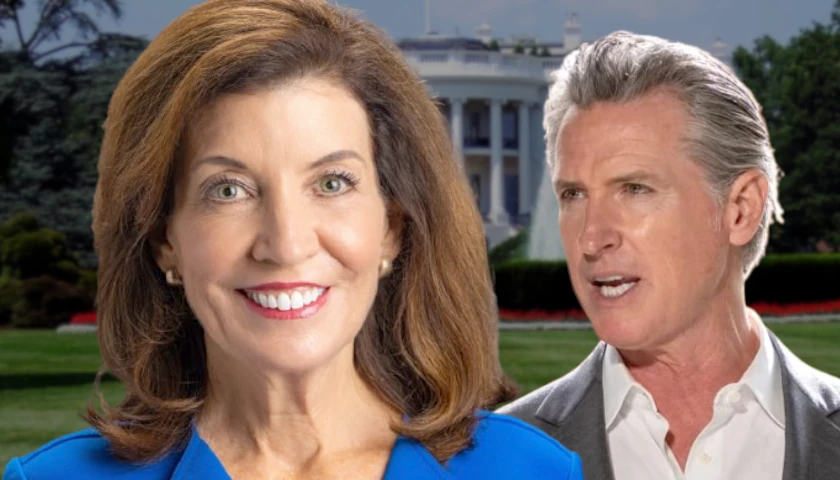The culture of corruption that has permeated Metro Nashville Government for years revolves around Chief Operating Officer Rich Riebeling, the man who appears to be in control of all the reins of power, while Acting Mayor David Briley joylessly slogs through the ceremonial duties of his temporary job.
On Monday, The Tennessee Star documented three specific opportunities Briley has had since March 6, when he was sworn in as Acting Mayor of Nashville, to ask for Riebeling’s resignation. On all three occasions, Briley failed to act.
Over the next two weeks, The Star will document additional instances of Riebeling’s conduct during his decade plus tenure as a key official in Metro Nashville Government that constitutes a conflict of interest that in any other public or private setting would be sufficient for a leader of the organization for which he works to call for his resignation.
Some of these instances will represent original reporting by The Star. Other instances will simply entail our reminding residents of Nashville/Davidson County of facts that are in the public record and have been previously reported by other news organizations.
Mr. Richard M. Riebeling served as Director of Finance for the Metropolitan Government of Nashville and Davidson County since November 2007. Mr. Riebeling has spent the past 12 years in public finance. He also served as the Commissioner of the Department of Economic and Community Development for the State of Tennessee. He also spent nine years as a partner in the law firm Stokes & Bartholomew, now Adams and Reese Stokes Bartholomew, practicing in public finance. He served as an assistant in the Mayor s Office for five years during the Fulton administration and three years as a newspaper reporter, leaving the Nashville Banner in 1978. He serves as Director of Nashville Public Radio. He received his law degree from Vanderbilt University in 1983.
Four of the last five bonds issued by Metro agencies have been underwritten by Piper Jaffray, which employs the son of Rich Riebeling, who is a top aide to Nashville Mayor Megan Barry and is the city’s chief operating officer. Barry has continued her predecessor’s practice of awarding bond underwriting contracts without a competitive bidding process.
“Though there is debate in municipal finance circles, the Securities and Exchange Commission and multiple experts say competitive bond deals tend to yield better interest rates and lower underwriting fees. Metro’s own debt management policy states that the city prefers competitive bond deals,” The Tennessean noted.
After Karl Dean was elected mayor in 2007, under Riebeling’s leadership of the city’s finances, Metro switched to negotiated deals. For negotiated deals, Metro and its financial adviser can hold behind-closed-doors talks with financial firms and pick one without a public bid. Proponents of these deals say negotiated offerings allow flexibility to go to the bond markets at the optimal time.In the past five years, Metro has used just one competitively bid bond deal.
On the other hand, the city has executed 17 negotiated bond deals in the past five years. Piper Jaffray has been the lead underwriter on nine of those deals and underwrote at least a portion of 16 issuances, according to records provided by Metro. Piper Jaffray, which is a preeminent financial firm headquartered in Minnesota, earned roughly $3.07 million in underwriting fees on those deals, according to an analysis by The Tennessean.
Metro does business with Piper Jaffray’s Memphis office, where Riebeling’s son Michael Riebeling works in the public finance division.
Michael Riebeling worked for Piper Jaffray from 2012 until 2017.
When The Tennessean broke the story about Riebeling’s consistent pattern of violating Metro’s debt management policy of requiring bond deals to be “competitive” rather than “negotiated” the Barry administration promised, going forward, “to change the way underwriting contracts are awarded. Finance Director Talia Lomax-O’dneal will oversee bond issuances, instead of Riebeling, and a new solicitation process will be implemented.”
But in 2017, Metro Nashville entered into a soccer stadium bond issue that was “negotiated,” not “competitive,” as voted on by the Metro Council in RS2017-910. (See Section 1, last sentence of first paragraph: “The Bonds shall be sold by the Authority by negotiated sale, and the Metropolitan Council hereby approves the sale of the Bonds…” ).
As At-large Council Member Erica Gilmore, a candidate for Mayor in the May 24 special election said last Friday of the proposed David Briley 2019 budget for Metro Nashville, “Promises Made, Promises Broken.”




